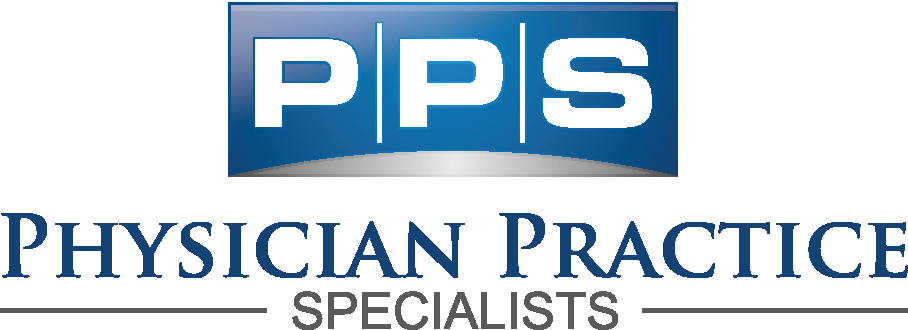We have spent a lot of time covering everything you “should do” when starting a practice, so we wanted to take some time to cover common pitfalls to avoid. In this article, we outline 10 common mistakes that can fast track your new practice to failure. This is obviously not intended to be comprehensive as there are countless mistakes you can make when starting a new practice, this is simply a list of some common mistakes we’ve witnessed over the course of starting 1000+ practices.
Mistake 1: Not allocating enough time to complete the credentialing and contracting phase
This is the first thing we want to mention as it is by far the most common mistake among new medical practices. Regardless of the reason or rationale, the fact is, about 65% of new practices open their doors without accepting all or even the majority of the insurance companies they want to contract with. We see this most often when a provider leaves another group and makes the unfortunate assumption that the payers will painlessly follow them to their new practice. Each new entity must be contracted with the payers and your credentials are tied to your previous employer’s payer agreement. The fact is, the credentialing AND contracting phase of any start up takes roughly 4-6 months. Even with this much time allocated to the process, the odds are that you will still have a few payers that are lagging behind and still not effective by the time you open. Trying to open a practice in 3 months is one of the worst things you could do to your fragile new business. Once credentialing with the payers has been completed, you then move on to EDI/ERA/EFT enrollment(often completed by your billing company) which takes another 2-3 weeks depending on the payer. Give yourself more than enough time to complete the credentialing and set your practice up for success. The last thing you want to do is turn patients away because you’re not participating with their insurer.
Avoid using any credentialing company that claims they can complete your credentialing in 30-90 days. There are only a couple payers that average less than 60 days for the credentialing process. Any company making claims that seem to good to be true, are just doing the old bait and switch routine. Be very careful. In addition, be aware that most of our competitors ship your information overseas for the credentialing process. Just remember that you get what you pay for.
Mistake 2: Failing to incorporate
Doesn’t happen often anymore but we still see a few practices operating as sole proprietorships under their SSN. This has so many severe tax and liability implications that it doesn’t even really deserve my time elaborating. Just don’t do it! You need to either form an LLC or s-corp (PLLC or PC in some states) and obtain a tax-id from the IRS. From a tax standpoint, forming an LLC but filing form 2553 to be taxed as an S-corp will save you thousands of dollars each year and protect your business. Also, please don’t co-mingle your funds- business expenses come out of business and personal out of personal. Failure to do so is another way to invite trouble into your life.
Mistake 3: Using a personal cell phone for business phone
This happens in about 30% of the practices we work with(against our advice) and is such a pain in the ass to correct. Once a phone number is provided to the insurance carriers, it eventually makes its way online where it lives for years to come. Even if your intention is to update the phone prior to opening, if you start the credentialing process with a private number, that number WILL get into the hands of patients. It is also extremely difficult to update the phone number mid-credentialing so you’ll typically need to wait until complete and submit a demographic info update request which takes 30-90 days to complete. If you cannot reserve a phone number for your business with the carrier you plan to use, purchase a digital (VOIP) phone/fax number and have it forwarded to your cell until your office line is established. You can then forward to your office until the number has been purged from online and updated with the payers.
Mistake 4: Over & understaffing during first 6 months
This is probably one of the more difficult parts of opening a practice. Practices typically err on the side of understaffing which is certainly the safe choice. Where you go wrong in this decision is when understaffing leads to phones going unanswered or patients feeling neglected. When starting out, it’s best to try to hire staff that are comfortable and competent in all areas of the practice. You also want to create a shortlist of potential hires so you’re not scrambling when you do need to hire additional staff. Your medical assistant should be able and willing to complete the patient registration process, schedule appointments and any thing else you may need. Phones going unanswered leads to lost revenue and it’s impossible for one medical assistant to be rooming a patient while simultaneously scheduling the consult that just came in. One solution for this which we recommend is to have an overflow answering service in place. If your internal staff is unable to answer the phone, the phone would rollover to your answering service. The answering service needs to be friendly and not feel like an answering service to the patient. If possible, you can even have an answering service that is trained on patient intake has access to your scheduling system.
Mistake 5: Failure in bookkeeping & accounting
Most practices wait until after their first year or until tax season to find a bookkeeper and accountant. You really need to have this in place before you open your doors. It’s not unusual for the owner to invest in the business, whether with cash or by forgoing a salary for the first 6 months, the sad part is that this investment often doesn’t make its way to your balance sheet at the end of the year. The tax code is too complicated and changes too often for you to risk simply winging it. By the time tax season rolls around, the fiscal year is over and any moves you should have made before 12/31 are long gone. You also need to remember that you’re required to make quarterly tax installments which is difficult to do correctly without an accountant. In addition to all of the tax implications, without monthly or at least quarterly accounting/bookkeeping, you are essentially running your business blind. Have a firm grasp on what it will cost when starting a practice, set a budget and stick to it.
Mistake 6: Signing longterm contracts
Regardless of the service or how amazing a partner seems, you do not want to sign any longterm contracts if you can help it. Even with your lease, you want to try to keep the term around 3 years if you can and limit the amount of Ti required which drives the price and contract length higher. The last thing you want to do is marry a bunch of vendors when you haven’t even started dating. Ask for probationary periods and make sure you have out-clauses that protect you.
Mistake 7: Selecting an inefficient EHR
This is an area where spending extra time evaluating really pays dividends in the future. Selecting the cheapest EHR out there will likely lead you to just converting to a more efficient system in the future. Transitioning EHRs once opened is a 1000 times harder than making a decision you can live with for years on the front end. Remember to measure the cost of an EHR against how many patients you can see in one program vs another. Also, be sure to factor in referral letters, training/support, eRX, clearinghouse enrollment, lab interfaces, coding and authorizations, as these are all areas that cheap EHRs typically underperform. Sending out referral/thank you letters is essential when starting so you want a system that makes this easy.
Mistake 8: Overspending on nonessentials
We’ve seen it countless times, a new practice is enamored by the latest and greatest technology and simply has to have it. Most don’t even bother calculating the ROI on this must-have piece of equipment, so they have absolutely no clue how long it will take to recover their investment. They simply have to have it to differentiate themselves or emulate their competition. The same is true when hiring staff, a lot of practices hire their first few employees without a ton of due diligence. Even worse is when a practice hires a friend but overpays by 20-30%. Hire your friends, but perhaps do so when you are in a better position to pay a premium for their services. It’s true that you get what you pay for but this doesn’t apply when you overpay someone that is a friend or colleague because you’re desperate for them or don’t want to insult them. Build a compensation schedule for your new hires that will show them in $$$ how you plan to increase their pay as the practice grows. You always want to have room for raises and starting someone too high will just leave them feeling underpaid when you can’t give them a raise at their annual evaluation.
Mistake 9: Underspending on essentials
This is another issue we see in nearly every new practice. It’s tough because you often don’t know how to categorize expenses as essential vs nonessential. This is where having someone who has been in your shoes lend a helping hand. Vendor selection such as EHR selection, billing/RCM service, credentialing, payroll, etc would all be considered essentials. If you’re not sure, ask yourself what the worse-case scenario is in each situation to determine if it’s one of those decisions that should require a little more thought and investment on your part. Selecting table paper is an obvious nonessential, but purchasing cheap or used exam tables is better than buying a cheap laptop. This cheap laptop will likely cost you thousands of dollars in lost productivity and you’ll inevitably have to replace the laptop within six months.
Mistake 10: No budget No business
Without a budget, you’re really treating this like someone building candles on Etsy or in other words, like a HOBBY. We’ve found that when a practice fails to put together a well-conceived budget, they’re essentially saying one of two things: 1. They don’t think it will be successful enough to plan how they will spend their money 2. They’re SO confident that it will be wildly successful that it doesn’t really matter how much money they spend. Either of these, are recipes are for disaster. You don’t go buy a house or even a car without a solid idea of what you want to or can spend. If your new practice is more than a hobby, please do yourself a favor and prepare a budget.
Subscribe Today to Receive our Latest Articles & Tools Delivered to Your Inbox
We hate spam as much as you(maybe more) so don't expect to receive emails too often. We try to send our newsletter out once a month, never more but often less.


